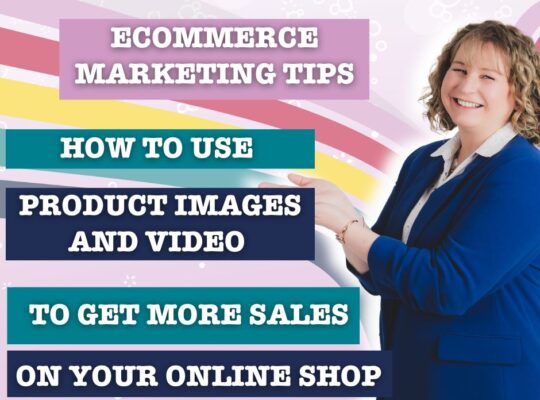Well as a retail marketing professional, of course my answer to this is going to be yes! But hear me out. Grab yourself a cup of tea or coffee, a chocolate biscuit (jammy wagon wheels are my favourite at the moment) and sit back because I’m going to tell you why you need one and what you should include in your social media strategy.
Firstly, let’s talk about how you’re currently approaching your social media. I tend to find that business owners either really don’t like it, therefore aren’t doing anything; or they’ve not got the time to look at it properly, so they’re posting here and there, not sure why they’re doing it, and hoping that it’s going to drive some visitors to their website. Sound familiar?
Why have a social media strategy for small business?
If you don’t have a plan of what you’re going to post and when, then that’s the first reason! If you’re posting randomly, you’re probably finding it difficult to come up with content to use. With a strategy in place, you’ll have a consistent programme of posts, and you’ll be able to prepare images, guides, videos and any other content in advance. So, it’s less of a chore!
Also, if you think that putting your business on social media will automatically get people visiting your website straight away, then I’m sorry you may be disappointed. Your social media should form part of a wider marketing strategy. As all your product marketing activities get going, they’ll start working together and you should start to see an increase of visitors to your website and conversions to purchases. I like to think of them all as cogs working together.
How to get your social media strategy started
So, if you want to build social media into your ecommerce marketing strategy, here are a few tips to get you started.
What is your reason?

What is it you’re trying to achieve by being on social media? Perhaps you’re trying to sell to similar customers to those that you already have and grow market share. Or maybe you want to break into a new market with new customers. Identifying this reason for doing marketing is your starting point.
Let’s do some research
How well do you know your customer? If you have Google Analytics plugged into your website, then you should be able to find some key information about them. But because you’re probably talking to your customers, you may already know what they like, why they’ve chosen to buy from you, and what it was that drove them to come and see you in the first place. Having this information and conversations with customers will help you to identify which social media channels they use, and therefore which ones you should be posting on.
A bit about your competition
If you know who your competitors are it’s worth having a look at what they’ve been doing on social media. It doesn’t necessarily mean that what they’re doing is right or that it’s working for them. They may have hundreds of thousands of followers and lots of likes on their posts, but these are what we called vanity metrics and don’t necessarily convert into sales. That is the great unknown. But from looking at what your competitors are doing it might spark a content idea or it might show you what you don’t want to be doing.
Set some goals

If you’re not planning to measure what you’re doing on social media, then what is the point? You could still then keep posting willy nilly and feeling very demotivated. Think about whether you’re trying to raise awareness of your brand, so perhaps you want more followers on your Facebook page. Or you’re trying to increase website visitors. How many of these would you like within a certain time frame?
Review your current social media channels
Have a look at how your pages are set up. Is there anything you can do to make them more consistent? Do your header images need updating? If you have a shop connected to your social media, are the products up to date? And the links to them too?
Time to get creative

If you’re a creative soul like me this is where we get to have a lot of fun! Generating content ideas and plotting them into a calendar makes your posts become real. You can then start to create your content and identify if you’re going to need help with it. From the copy, the hashtags, the images and videos. It takes time, but so worth it!
Scheduling
How are you going to share your posts? There are many social media scheduling tools out there. Facebook Business Suite is perfect for posting on Facebook and Instagram; however, I really like Later for Instagram because it reflects how your Instagram page looks. Contentcal is great for both plus LinkedIn and Twitter. Pinterest also has its own scheduling tool. When it comes to Tik Tok you can create your video in advance, save it and post it when you’re ready.
Be social
People are on social media to be social (perhaps a little nosey even!) but not there to be sold to. So now you’ve started posting in a consistent way if someone has commented on one of your posts it’s important to have a conversation and reply to their comment. Be careful about who in your business responds to these comments because the tone of voice needs to be consistent. And they need to know a lot about your business to be able to respond to any questions that may pop up.
Monitor and measure

With your social media campaign well underway, you can measure whether your goals are being met. Using tools like Google Analytics and Facebook Insights will show you whether traffic is going to your website from social media channels or not. This will allow you to make any changes to your campaign if needed.
Hints and tips to make your social media efforts worthwhile
I’ve just realised how lengthy this blog is! Who knew I had so much to say about developing a social media strategy?! I hope it’s been useful and that you’ve managed to get some tips from it, and not nodded off!
And as always if you need any advice, or want to chat a strategy through then please do get in touch with me.
Gill x







